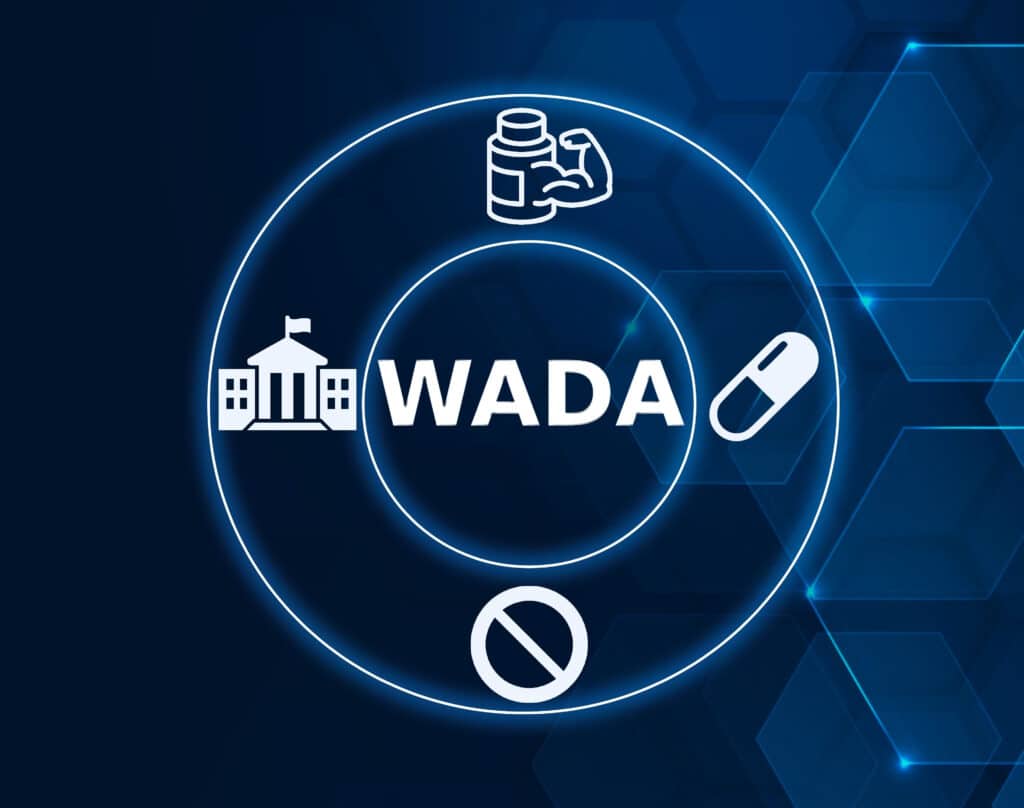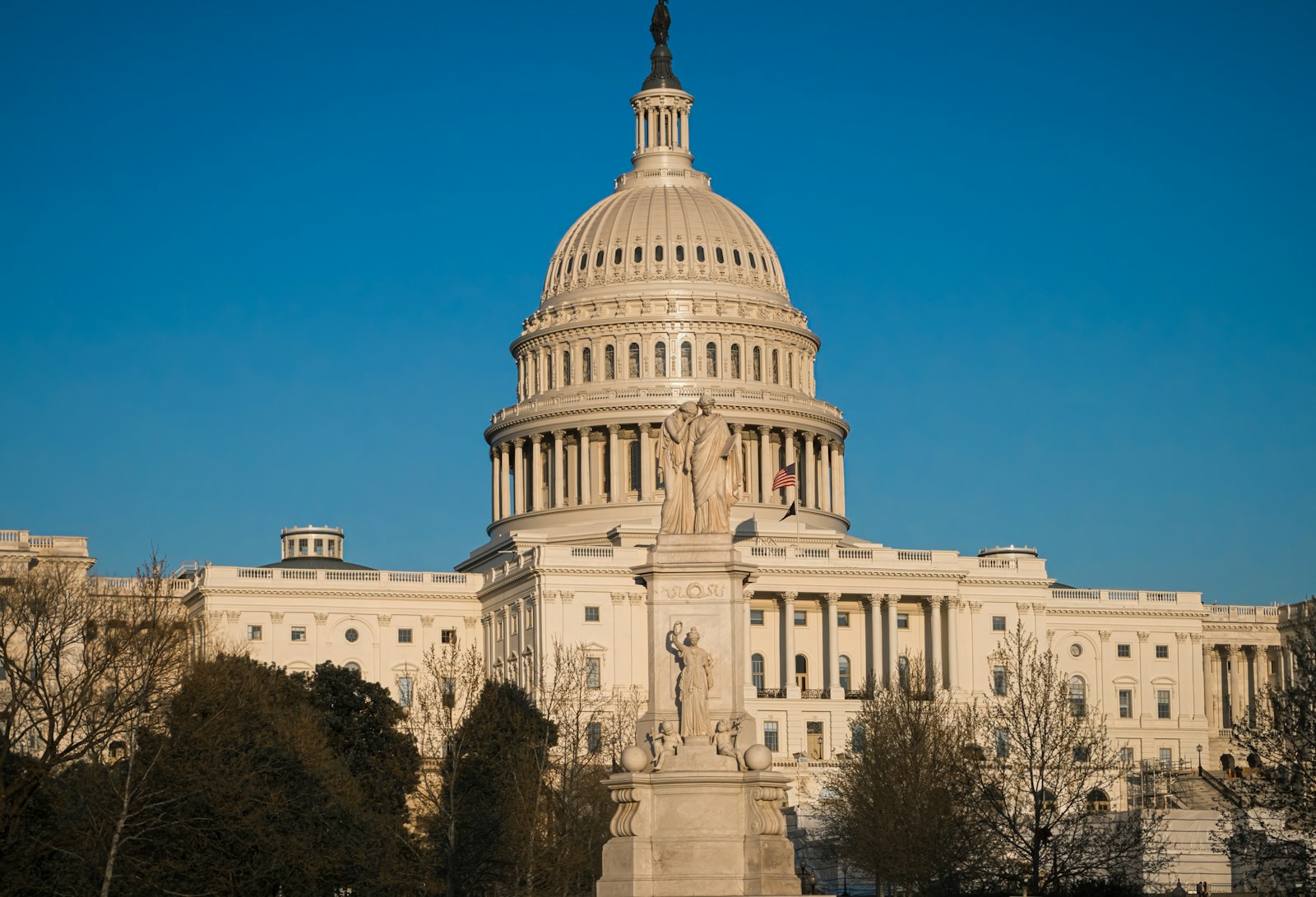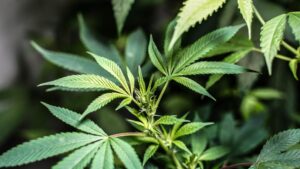Cannabis
What Does It Say That Pro Sports All Cool with Marijuana?
Published
4 months agoon
By
admin
The UFC joined other professional sports recently, in taking marijuana off of its banned substances lists; what does this say overall, that pro sports associations are now okay with weed?
Drugs and athletics
It’s not like drug use during sporting events is a new concept. Back in Ancient Greece, where the Olympic games originated, it was customary, according to ProCon, for athletes to drink potions made with wine, use hallucinogens, or eat the hearts and testicles of animals for strength. None of this was considered unethical or illegal at the time. The Ancient Greeks also used something later called ‘doop’ by the Dutch, which is a viscous opium fluid. Its thought that ‘doop’, transformed over time into ‘doping.’
When it comes to drugs and athletics, there are two things to consider: whether the drug is employed to help with performance, or if its simply that the participant is using something generally illegal. Heroin, for example, isn’t known to help with athletic performance, but is illegal in general. A player found on heroin, would be in just as much trouble as a guy taking steroids; which in another, medical capacity, could be legal.
Official international sporting competitions, adhere to both of these ideas, and the use of illicit or performance enhancing drugs, is banned. The international group WADA (World Anti-Doping Agency) sets official anti-doping/drug policy, used by the international world, across all professional sports. However, the professional sports associations of the US have their own policies.

One of the big debates in the world of drugs and pro sports, is whether marijuana should be considered a performance enhancing drug. It’s currently illegal per WADA, even though different US sporting associations, allow it. To add to the complexity, cannabis and its compounds, are often used therapeutically for sports injuries, making them actual medicines.
UFC latest pro sports group to loosen marijuana restrictions
First off, the UFC (Ultimate Fighting Championship) is a company, its not a league. NBA, NFL, MLB…they’re all leagues. So it’s not exactly the same thing. However, just like those leagues, it sets its own rules and policies for what’s legal for professional athletes. At the end of December, UFC put into effect a new anti-doping policy; for which further details were released the next week in January.
Part of this announcement was the removal of cannabis altogether from the banned substances list. This is not the first move in this direction by the UFC. In 2021, UFC stopped considering a positive THC test as a violation, unless other evidence suggests that the athlete used it for enhancement, or in some other illegal way.
Beyond cannabis, the new UFC anti-doping rules maintain a drug-testing program for all athletes, which involves no-notice biological sample collection. It also has plans to establish a system that looks at drug amounts found in the system, called Decision Concentration Limits (thresholds). This will differentiate between intentional use and unintentional exposure, when it comes to prohibited substances.
Hunter Campbell, UFC’s chief business officer, explained “UFC’s goal for the Anti-Doping Policy is to be the best, most effective, and most progressive anti-doping program in all of professional sports,” and that “UFC is proud of the advancements we have made with our anti-doping program over the past eight years.”
Marijuana elsewhere in pro sports
UFC is hardly the first pro sports outfit to change its stance on marijuana recently. Back in April, the NBA, as part of a new Collective Bargaining Agreement between the NBA and the Players Association, changed its stance on weed as well. According to the new agreement, which was subsequently ratified by both sides at the end of April; cannabis will no longer be tested for, or penalized.

The NFL also recently loosened policy in its own collective bargaining agreement made before the beginning of the 2020-2021 season. The update still restricts use during the playing season, but no longer polices use in the off-season. A second update also increased the amount of THC needed in the system for it to count as a positive test. The threshold increased to 150ng from 35ng. Plus, players only undergo testing at one time, at the beginning of the season.
MLB is even further ahead of its compatriots, taking cannabis off its banned substances list back in 2019. Players have no issue using it in the off-season. In fact, players aren’t even tested anymore during the playing season; and only run into problems if they seem noticeable high. The association still considers cannabis a ‘drug of abuse.’
The most forward thinking of all the professional sports, however, is the NHL, which never tested for cannabis in the first place, and never held it as a banned substance. It can identify problematic use; however even in these cases, there’s no specific protocol for how to handle the situation. Players have the right to attend or not attend the league’s Substance Abuse and Behavioral Health program. And NHL won’t know either way.
…Even the NCAA is close to dropping cannabis
The NCAA (National Collegiate Athletic Association) is the non-profit regulating body for pretty much all student athletics in the US. Currently, the NCAA has cannabis on its banned substances list, however, the Committee on Competitive Safeguards and Medical Aspects of Sports (CSMAS), a committee within the NCAA, brought up the idea of taking cannabis off this list, last year.
In June of 2023, the NCAA released a statement on the matter; but gave no further indication as to whether the recommendation would be taken up, or not. In the last several months, different events and meetings have been held, with this idea spoken of further. However, still, no formal decision made. Given the amount of conversation that’s going on, however, it seems something is likely on the way in 2024.
As the NCAA works with 24 sports in 1,098 universities, has 102 athletic conferences, 19,886 teams, and 90 different championship events; it includes all student sports. A change in policy here, would indicate that cannabis is not seen as dangerous, even for these younger crowds.

What does this mean?
Sports are widely associated with the idea of physical fitness; and physical fitness is an understood cornerstone of general good health. Therefore, sports are usually associated (directly or indirectly) with the idea of good health. While athletes don’t necessarily have to be in good health, there aren’t that many cases where they are not.
Aside from the concept of doping – which is meant to increase performance, many athletes won’t use drugs that can hurt their bodies or their abilities; at least not during training seasons. So its not a population where there are large and uncontrollable drug problems, although this isn’t to say that substance abuse can’t be an issue for some.
The backing off of cannabis in US professional and collegiate sports, is a strong indication that there really isn’t much provable danger associated with it. And for this to be accepted in a community of people very into their physical health, also indicates that all the bans and restrictions in place, are just holdovers from the yellow journalism-inspired legislation of the early-mid 1900s. It indicates how the what-should-be-obvious truth of the plant, is now becoming inarguable due to the current cascade of research into the topic.
And it means we’ve gotten that much further in the direction of general and overall cannabis approval and acceptance. Something that indicates we’ll see even more loosening of cannabis restriction country wide, in the upcoming year.
Conclusion
If pro sports associations are okay with marijuana – or at least – not against it, and even the military is looking to drop certain testing restrictions…why is it still illegal at all?
Hello weed aficionados, and welcome to Cannadelics.com. We report on the latest happenings in the weed, and overall, wellness industry. Come ’round regularly to collect important updates; and subscribe to the Cannadelics Weekly Newsletter; for awesome product promos, with the news.
Related
You may like
Cannabis
Senate Leadership Pushes End of Federal Prohibition Of Cannabis
Published
1 day agoon
May 3, 2024By
admin
In a big week for the marijuana industry and a surprise to most of the industry, Senators Schumer (D-NY), (Murray D-WA), Wyden (D-OR), Cory Booker (D-NJ) and 14 others have deduced to follow the public and make a change. As of today, Senate leadership pushes end of federal prohibition of cannabis.
Senator Patty Murray, a senior member and former Chair of the Senate Committee on Health, Education, Labor, and Pensions (HELP) has long been a champion of veterans. This falls in line with PTSD treatments and with the American Medical Association’s backing of rescheduling and more medical research to see how the cannabis plant can help more patients.
RELATED: California or New York, Which Has The Biggest Marijuana Mess
They have reintroduced the Cannabis Administration and Opportunity Act (CAOA), legislation that would end the harmful federal prohibition of cannabis by removing cannabis from the list of federally controlled substances and empowering states to create their own laws. This legislation would be a historic step toward rectifying the failed policies of the War on Drugs and would help federal law better reflect the will of the vast majority of Americans, 91% of whom believe that cannabis should be legalized for either adult or medical use.
“It is far past time that the federal government catch up to Washington state when it comes to cannabis laws. This legislation is about bringing cannabis regulations into the 21st century with common-sense reforms to promote public safety and public health, and undo deeply unjust laws that have for decades disproportionally harmed people of color,” said Senator Murray. “The Cannabis Administration and Opportunity Act will help set us on a safe and responsible pathway to legalization—I’ll keep working to secure the necessary support to get it done.”

The Cannabis Administration and Opportunity Act establishes a federal regulatory framework to protect public health and safety, prioritizes restorative and economic justice to help undo harm caused by the War on Drugs, ends discrimination in the provision of federal benefits on the basis of cannabis use, provides major investments for cannabis research, and strengthens worker protections. By decriminalizing cannabis at the federal level, the CAOA also ensures that state-legal cannabis businesses or those in adjacent industries will no longer be denied access to bank accounts or financial services simply because of their ties to cannabis.
The Cannabis Administration and Opportunity Act:
- Protects public health by:
- Establishing a Center for Cannabis Products to regulate production, labeling, distribution, sales and other manufacturing and retail elements of the cannabis industry.
- Instructing the FDA to establish standards for labeling of cannabis products, including potency, doses, servings, place of manufacture, and directions for use.
- Establishing programs and funding to prevent youth cannabis use.
- Increasing funding for comprehensive opioid, stimulant, and substance use disorder treatment.
- Protects public safety by:
- Removing cannabis from the Controlled Substances Act and eliminating federal prohibitions in states that have chosen to legalize medical cannabis, or adult-use cannabis.
- Retaining federal prohibitions on trafficking of cannabis in violation of state law; establishing a grant program to help departments combat black market cannabis.
- Requiring the Department of Transportation (DOT) to create standards for cannabis-impaired driving.
- Directing the National Highway Traffic Safety Administration (NHTSA) to collect data on cannabis-impaired driving, create educational materials on “best practices,” and carry out media campaigns.
- Incentivizing states to adopt cannabis open container prohibitions.
- Regulates and taxes cannabis by:
- Transferring federal jurisdiction over cannabis to the Alcohol and Tobacco Tax and Trade Bureau (TTB).
- Eliminating the tax code’s restriction on cannabis businesses claiming deductions for business expenses, and implementing an excise tax on cannabis products.
- Establishing market competition rules meant to protect independent producers, wholesalers, and retailers and prevent anti-competitive behavior.
- Encourages cannabis research by:
- Requiring the Government Accountability Office (GAO) to study and report on metrics that may be impacted by cannabis legalization.
- Requiring the Department of Health and Human Services (HHS) and National Institutes of Health (NIH) to conduct or support research on the impacts of cannabis.
- Requiring the VA to carry out a series of clinical trials studying the effects of medical cannabis on the health outcomes of veterans diagnosed with chronic pain and post-traumatic stress disorder.
- Requiring the Bureau of Labor Statistics to regularly compile and publicize data on the demographics of business owners and employees in the cannabis industry.
- Establishing grants to build up cannabis research capacity at institutions of higher education, with a particular focus on minority-serving institutions and Historically Black Colleges and Universities.
- Prioritizes restorative and economic justice by:
- Using federal tax revenue to fund an Opportunity Trust Fund to reinvest in communities and individuals most harmed by the failed War on Drugs.
- Establishing a Cannabis Justice Office at the Department of Justice’s Office of Justice Programs
- Establishing a grant program to provide funding to help minimize barriers to cannabis licensing and employment for individuals adversely impacted by the War on Drugs.
- Establishing expedited FDA review of drugs containing cannabis manufactured by small businesses owned by socially and economically disadvantaged individuals.
- Directing the Secretary of Housing and Urban Development to establish a grant program to provide communities whose residents have been disproportionately affected by the War on Drugs with additional funding to address the housing, economic, and community development needs of such residents.
- Initiating automatic expungement of federal non-violent cannabis offenses and allows an individual currently serving time in federal prison for nonviolent cannabis offense to petition a court for resentencing.
- Disallowing the denial of any benefits or protections under immigration law to any noncitizen based on their use or possession of cannabis.
- Prevents discrimination in the provision of federal benefits against people who use cannabis.
- Strengthens workers’ rights by:
- Removing unnecessary federal employee pre-employment and random drug testing for cannabis
- Ensuring worker protections for those employed in the cannabis industry.
- Establishing grants for community-based education, outreach, and enforcement of workers’ rights in the cannabis industry.
RELATED: Cannabis Industry Employs The Same As These Companies
The Cannabis Administration and Opportunity Act is co-sponsored by U.S. Senators Jeff Merkley (D-OR), Kirsten Gillibrand (D-NY), Elizabeth Warren (D-MA), Ed Markey (D-MA), Michael Bennet (D-CO), Gary Peters (D-MI), Tina Smith (D-MN), John Hickenlooper (D-CO), Ben Ray Luján (D-NM), Alex Padilla (D-CA), Peter Welch (D-VT), Rev. Raphael Warnock (D-GA), John Fetterman (D-PA), and Laphonza Butler (D-CA).
Senator Murray has been a leader on common-sense cannabis reforms. She helped introduce the Cannabis Administration and Opportunity Act last Congress, and in 2017, she first introduced the Secure and Fair Enforcement (SAFE) Banking Act which would allow state-legal cannabis businesses to access banking services. She has reintroduced the bill multiple times and is pushing hard for its passage. An updated version of the legislation—the Safe and Fair Enforcement Regulation (SAFER) Banking Act of 2023, which Murray also cosponsored—passed through committee after a bipartisan markup last fall.

House racing is highly popular sports with over 45,000 races run in the US and Canada last year. The Kentucky Derby is the pinnacle of horse racing in North America, but most major metro hubs have some type of opportunity. Globally it is a $400 billion industry with tens of millions of people watching. But are they off to the horse races with cannabis?
RELATED: How To Be Discreet When Using Weed
The biggest horse racing party is the Kentucky Derby and the Infield (the area inside the track) is a huge one with beer trucks, Mardi Gras bead shenanigans, and maybe a little whiff of weed. While Churchill Downs, where the race is run, bans all smoking, vapes, gummies and more make the way in. The same is true across the realm. But what about those in the race?

Horse racing is an intense activity for the animal, and increasingly, horse owners are adapting human products (either medical marijuana or hemp) for their athletes. Recovery, hydration, inflammation and pain management are all benefits for the horse if done with the correct dosage. Additionally, it is seen as a potential for calming a horse.
Like the human mass market, CBD is leading the way. But the efficacy and safety of some products is questionable, due to very little research and supervision. Until the passage of the 2018 Farm Act, it was illegal to possess or conduct research on hemp as well as marijuana. Like the NFL, owners should be aware CBD and THC cannot be used in when competing, and if CBD shows up on a drug test that horse may be disqualified.
RELATED: The Most Popular Marijuana Flavors
With rescheduling, there should be more research done regarding CBD and THC’s benefits to animals, especially pets and horses. Before administering CBD to horses, horse owners should first consult with a veterinarian.
Additionally, jockeys are banned from using cannabis while racing. This falls inline with the current global sports guidelines. CBD has been used in helping with recovery, but it can not be used prior to the race, especially if you are looking at winning.

The Cannabis world is going through another big change with the potential of rescheduling – but what does it really mean?”
The Fresh Toast – The cannabis world is going through another major change, so what is the future of cannabis after rescheduling?
The Drug Enforcement Administration (DEA) is moving for cannabis to be rescheduled. The anticipated rescheduling follows the Department of Health & Human Services’ (HHS) August 2023 recommendation, based on scientific support for the rescheduling from the FDA, that cannabis be rescheduled under Schedule III of the Controlled Substances Act. Cannabis has remained a Schedule I substance since it was originally “temporarily” classified as such by the Controlled Substances Act of 1970. Schedule I drugs are defined as having no currently accepted medical use and a high potential for abuse, with other Schedule I drugs including heroin and LSD (despite cocaine, fentanyl, and other potentially dangerous drugs being in less restrictive drug schedules). The status of cannabis as a Schedule I drug has long been criticized, particularly as more and more U.S. states legalized cannabis for medical and recreational use.
RELATED: Beer Sales Flatten Thanks To Marijuana
From a consumer standpoint rescheduling will not actually legalize cannabis. At least not in a way forcing States in which cannabis is currently prohibited to immediately change course as a direct result of rescheduling. Instead, those States are likely to continue cannabis prohibition (though this momentous step may influence further states to legalize). Similarly, states with state-legal cannabis programs will likely not immediately change from a consumer perspective, although further regulation or even a reduction in product pricing due to cannabis no longer being subject to section 280E of the Internal Revenue Code (discussed in detail below) may soon follow.

There is more going on the business side with rescheduling. Falcon Rappaport & Berkman LLP has reviewed the process and outcomes.
Taxes
The most significant consequence of cannabis rescheduling will be the immediate removal of cannabis from the reach of I.R.C. Section 280E, which is arguably the greatest burden on state-legal cannabis operators. Section 280E prohibits cannabis businesses from writing off many business expenses when calculating their net profit, which has resulted in vastly higher taxes as compared to similar non-cannabis businesses. Instead, section 280E only permits a deduction for the Cost of Goods Sold (COGS) for any business trafficking in any controlled substances (i.e., drugs listed on Schedule I or Schedule II). Despite cannabis businesses operating under state-legal programs, they are considered “trafficking” and cannot take ordinary business deductions. Allowing cannabis businesses to deduct all ordinary and necessary business expenses, and not just COGS, will help to even the playing field with nearly every other legal business.
Federal Illegality
As discussed from a consumer standpoint, rescheduling cannabis does not affect the overall federal illegality of cannabis. This means that state-legal cannabis businesses will not automatically be federally legal, as their federal illegality will continue under Schedule III. While Schedule III drugs may be legally prescribed and sold under federal law, the various restrictions (such as requiring FDA approval of any such Schedule III drug and DEA registration of a distributor) mean that your average dispensary, even medical dispensaries, will still be federally non-compliant. For these same reasons, the reclassification to Schedule III does not mean that marijuana grown pursuant to state programs can be sold in interstate commerce. Marijuana products, even under Schedule III, are only federally legal if they are federally approved and there are only three FDA-approved cannabis-based drugs developed to date (Marinol, Epdiolex, and Syndros).
RELATED: Cannabis Industry Employs The Same As These Companies
Intellectual Property & Cannabis Trademarks
The United States Patent and Trademark Office (USPTO), the agency tasked with examining federal trademark applications, has generally required use of a mark to be lawful under federal law in order to receive federal trademark registration under the U.S. Trademark Act (see Examination Guide 1-19). The federal illegality of cannabis has thus prevented trademark registration in connection with most cannabis products. Unfortunately, cannabis rescheduling will not remedy this issue. Even in Schedule III, cannabis products would have to be federally lawful, with lawful use of a Schedule III drug requiring FDA approval.
Entitlement to Federal Bankruptcy Protection
Currently, plant-touching cannabis companies are not entitled to federal bankruptcy protection. That is because the U.S. Bankruptcy Code requires that bankruptcy plans are “proposed in good-faith and not by any means forbidden by law.” Since even state-regulated cannabis companies violate the federal Controlled Substances Act (CSA), they are disqualified. Unfortunately, rescheduling to Schedule III of the CSA alone will not likely solve that barrier to bankruptcy. While some have argued otherwise, the fact is that to manufacture, distribute, or dispense a Schedule III Controlled Substance, businesses must be registered with the Drug Enforcement Administration (“DEA”). Any business or person not registered with the DEA is not authorized to manufacture, distribute, or dispense it. Meaning that violations would likely constitute an unlawful act under the CSA. Consequently, an attempt by the non-complying business to commence a voluntary petition seeking federal bankruptcy protection will likely result in a motion to dismiss the case by the U.S. Trustee’s Office.
However, in light of a recent trend among bankruptcy court’s in allowing ‘one-step-removed’ distribution of cannabis-related assets, federal rescheduling may very well result in a more liberalized approach to administering bankruptcy cases so that bankruptcy judges will be more willing to look past the issue of marijuana’s federal illegality.
Status Quo
There are several aspects of the existing cannabis industry which would not be immediately changed by rescheduling cannabis to Schedule III. Ongoing banking issues including the lack of access to standard commercial bank loans and lines of credit would likely persist; difficulties in processing cannabis transactions due to the reality that major credit card companies like Visa, Mastercard and others will likely still not service marijuana businesses; general federal illegality; and the criminalization of cannabis (and continued incarceration of certain offenders) in prohibitive states would remain following rescheduling.
While many had hoped for the de-scheduling of cannabis, the change in stance of the DEA, a longstanding adversary of cannabis reform, is no small feat.
Terran Cooper is a regular contributor to The Fresh Toast. He is part of Falcon Rappaport & Berkman LLP. This article was developed in part with the help of Andrew Cooper and Matthew Foreman.

How Not to Roll a Joint : Common Blunders Beginners Make

Cannabis Makes Gym Workouts More Fun Says New Fitness Study

Marijuana backers eye proposed federal regulatory change as an aid to legalizing pot in more states

Senate Leadership Pushes End of Federal Prohibition Of Cannabis

Off To The Horse Races With Cannabis

The Future Of Cannabis After Rescheduling

A Happy Hippie’s Journey of Love, Cannabis, and Self-Discovery

But What about the UN Drug Treaties?

The Best Tips To Up Your Intimacy Game While High

What Can Consumers Expect From Marijuana Rescheduling

Distressed Cannabis Business Takeaways – Canna Law Blog™

United States: Alex Malyshev And Melinda Fellner Discuss The Intersection Of Tax And Cannabis In New Video Series – Part VI: Licensing (Video)

Drug Testing for Marijuana – The Joint Blog

What you Need to Know

Cannabis, alcohol firm SNDL loses CA$372.4 million in 2022

NCIA Write About Their Equity Scholarship Program

City Of Oakland Issues RFP For Employee Training Programs

It has been a wild news week – here’s how CBD and weed can help you relax

A new April 20 cannabis contest includes a $40,000 purse

UArizona launches online cannabis compliance online course
Trending
-

 Cannabis News1 year ago
Cannabis News1 year agoDistressed Cannabis Business Takeaways – Canna Law Blog™
-

 One-Hit Wonders1 year ago
One-Hit Wonders1 year agoUnited States: Alex Malyshev And Melinda Fellner Discuss The Intersection Of Tax And Cannabis In New Video Series – Part VI: Licensing (Video)
-

 drug testing5 months ago
drug testing5 months agoDrug Testing for Marijuana – The Joint Blog
-

 Cannabis 1011 year ago
Cannabis 1011 year agoWhat you Need to Know
-

 Marijuana Business Daily1 year ago
Marijuana Business Daily1 year agoCannabis, alcohol firm SNDL loses CA$372.4 million in 2022
-

 Education1 year ago
Education1 year agoNCIA Write About Their Equity Scholarship Program
-

 Education1 year ago
Education1 year agoCity Of Oakland Issues RFP For Employee Training Programs
-

 Cannabis1 year ago
Cannabis1 year agoIt has been a wild news week – here’s how CBD and weed can help you relax



